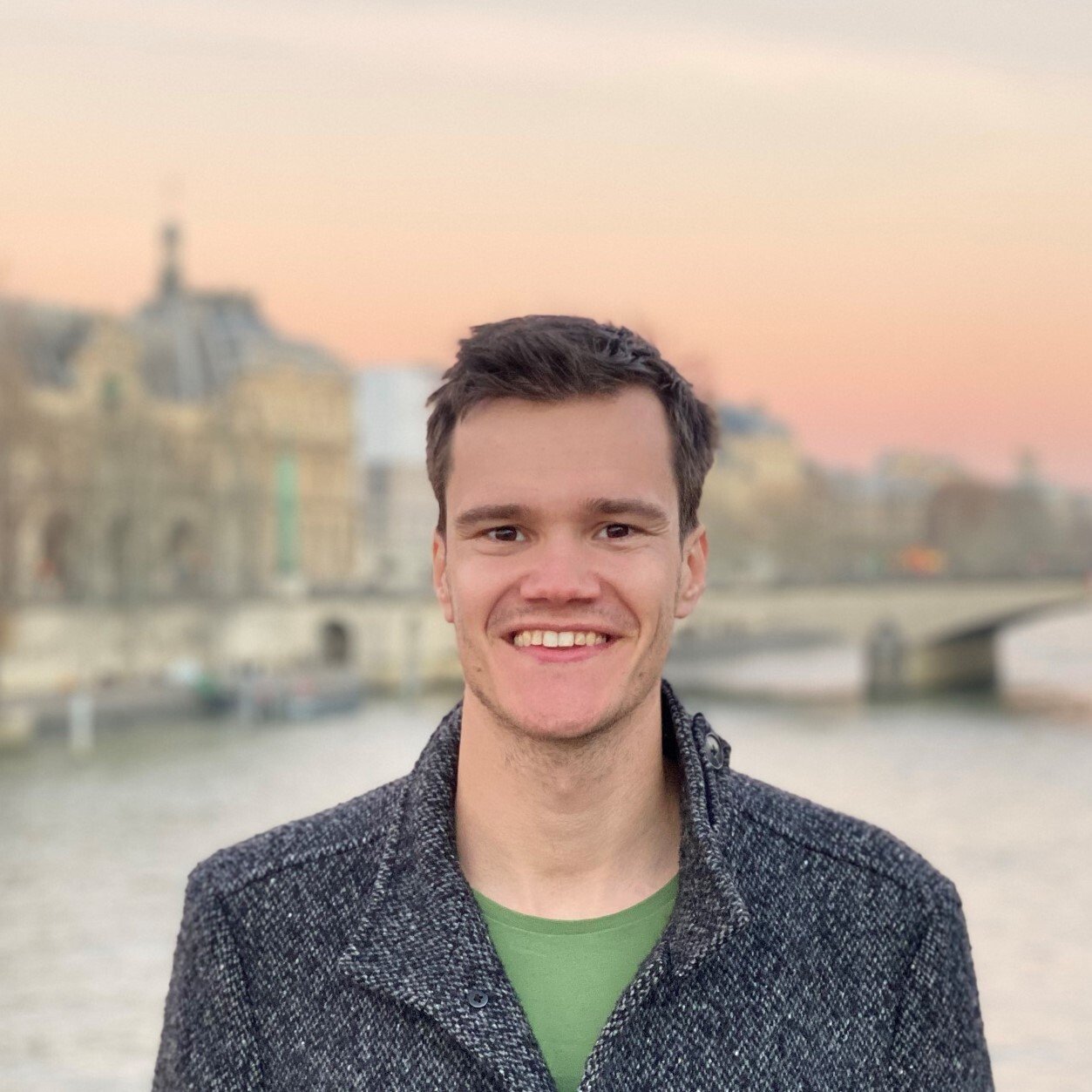Sander Tonkens
Email: stonkens (at) ucsd.edu
Sander Tonkens is a Ph.D. student in Mechanical and Aerospace Engineering at UCSD. Prior to joining UCSD, Sander received an M.S. from Stanford University (doing research as an RA in ASL under Prof. Marco Pavone) and a B.Sc. from EPFL, in Lausanne, Switzerland (both in Mechanical Engineering). Sander is the recipient of the Netherlands-America Foundation Graduate Fellowship and is a Fulbright Graduate Scholar.
Sander's research interests lie at the intersection of control theory, machine learning, and applied robotics. In particular, his current research focuses on providing system-level safety assurances for learning-based systems that adapt readily to changes in the problem setup.
In his free time, Sander enjoys backpacking, backcountry skiing, climbing, surfing, tennis, and all other things outdoors.
Selected Projects
Contingency planning: the policy planner (blue AV) implicitly nudges a non-controlled AV (red) to change lanes upon detecting the blocked lane (scenario A), which can be viewed as the cooperative strategy. However, the decision tree retains the ability to yield at a later time once the red agent is identified as being non-cooperative (scenario C)
Related Papers
Sander Tonkens*, Nikhil Uday Shinde*, Azra Begzadić*, Michael C Yip, Jorge Cortés, and Sylvia Herbert. “From Space to Time: Enabling Adaptive Safety with Learned Value Functions via Disturbance Recasting.” Conference on Robot Learning (CoRL), 2025, to appear.
Sander Tonkens*, Nikhil Uday Shinde*, Azra Begzadić*, Michael C Yip, Jorge Cortés, and Sylvia Herbert. “Space to Time: Out-of-Distribution Generalization of Safety Filters via Temporal Disturbance Encoding.” Second Workshop on Out-of-Distribution Generalization in Robotics at RSS, 2025.
Begzadić, Azra Nikhil Uday Shinde, Sander Tonkens, Dylan Hirsch, Kaleb Ugalde, Michael C Yip, Jorge Cortés, and Sylvia Herbert. “Back to Base: Towards Hands-Off Learning via Safe Resets with Reach-Avoid Safety Filters.” Learning for Dynamics and Control (L4DC), 2025.
Chen, Yuxiao, Sander Tonkens, and Marco Pavone. "Categorical Traffic Transformer: Interpretable and Diverse Behavior Prediction with Tokenized Latent." IEEE International Conference on Robotics and Automation (ICRA), 2025.
Tonkens, Sander, et al. "Scalable safe long-horizon planning in dynamic environments leveraging conformal prediction and temporal correlations." Long-Term Human Motion Prediction Workshop, International Conference on Robotics and Automation. 2023.
Tonkens, Sander, et al. "Patching Neural Barrier Functions Using Hamilton-Jacobi Reachability." IEEE Conference on Decision and Control (CDC), 2024.
Sander Tonkens and Sylvia Herbert. "Refining Control Barrier Functions through Hamilton-Jacobi Reachability." International Conference on Intelligent Robots and Systems (IROS), 2022. [link to code]
Tonkens, Sander, Paul De Klaver, and Mauro Salazar. "Optimizing vaccine allocation strategies in pandemic outbreaks: An optimal control approach." European Control Conference (ECC). IEEE, 2022.
Tonkens, Sander, Joseph Lorenzetti, and Marco Pavone. "Soft robot optimal control via reduced order finite element models." IEEE International Conference on Robotics and Automation (ICRA). IEEE, 2021.


